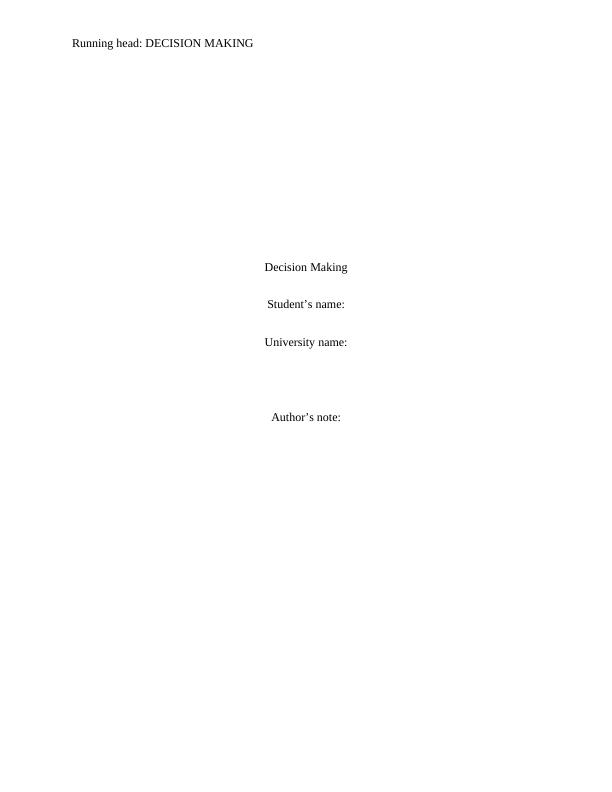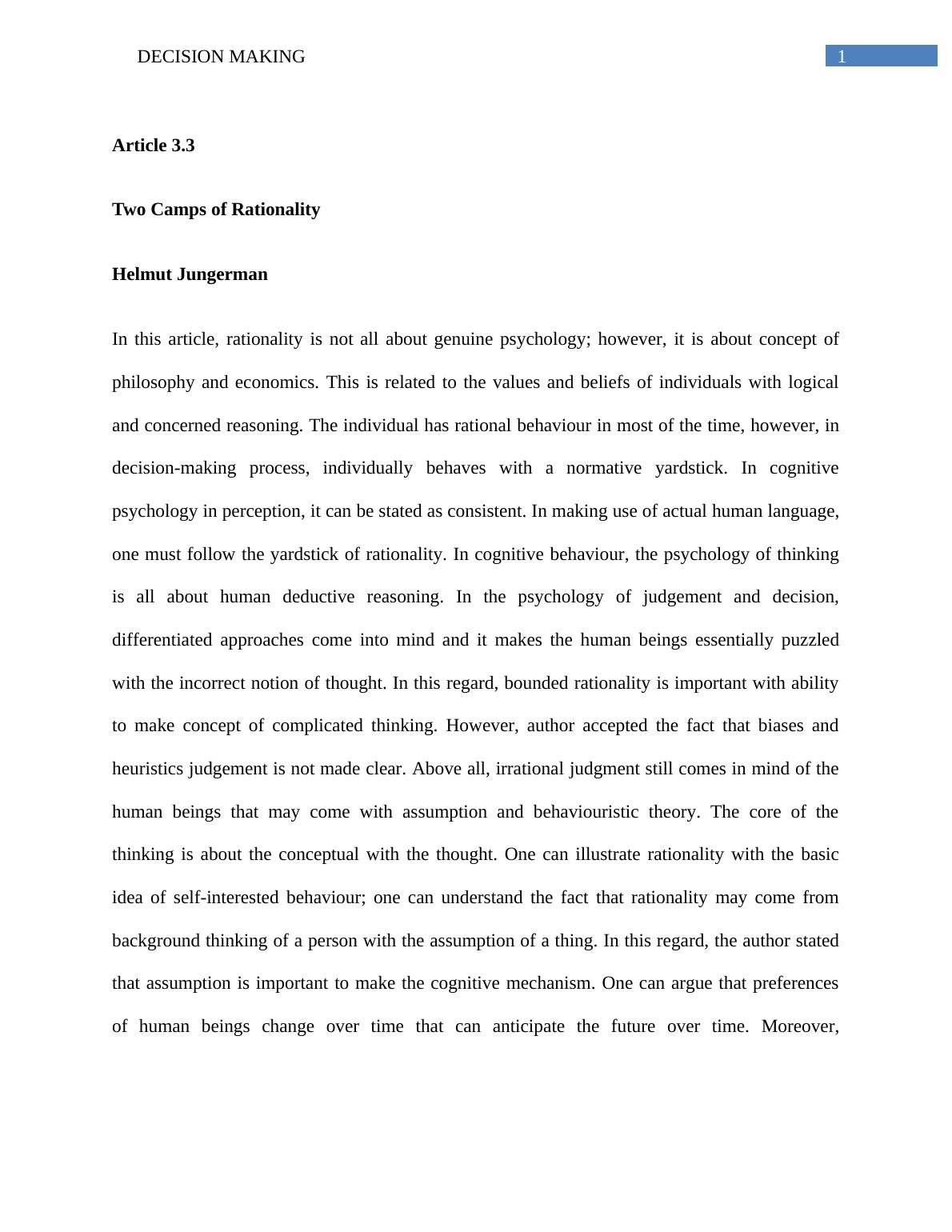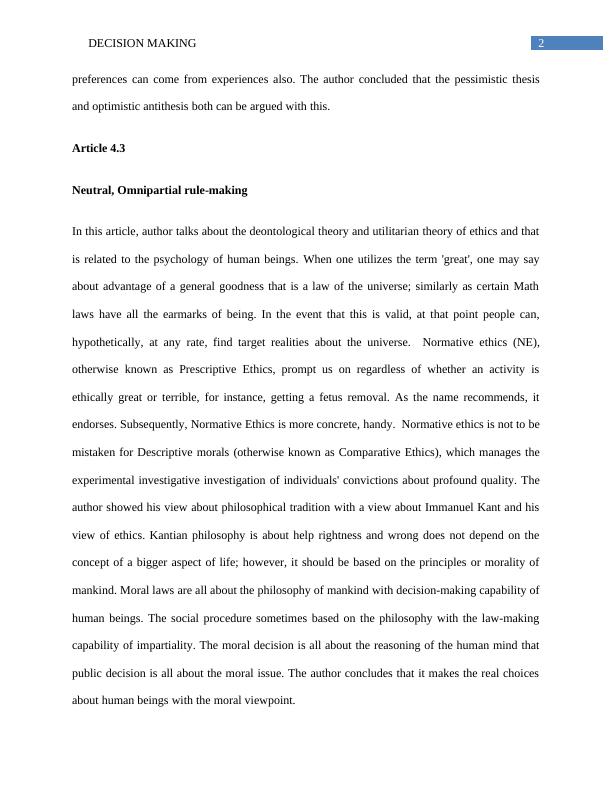Ask a question from expert
Assignment On Decision Making - Role Of Psychology
6 Pages1203 Words303 Views
Added on 2020-02-19
Assignment On Decision Making - Role Of Psychology
Added on 2020-02-19
BookmarkShareRelated Documents
End of preview
Want to access all the pages? Upload your documents or become a member.
Biases in Decision Making and Rational Behaviour
|7
|2173
|404
Summary of a Satisfactory Moral Theory
|7
|1466
|121
Behavioural Economics: Core Cognitive Theories and Impact on Economic Decision-Making
|9
|3086
|1
Managerial decision-making
|10
|2190
|317
THE ETHICS AND GOVERNANCE
|6
|1209
|13
Prudence, Ethics and Accountability Australia Essay 2022
|10
|2495
|15


